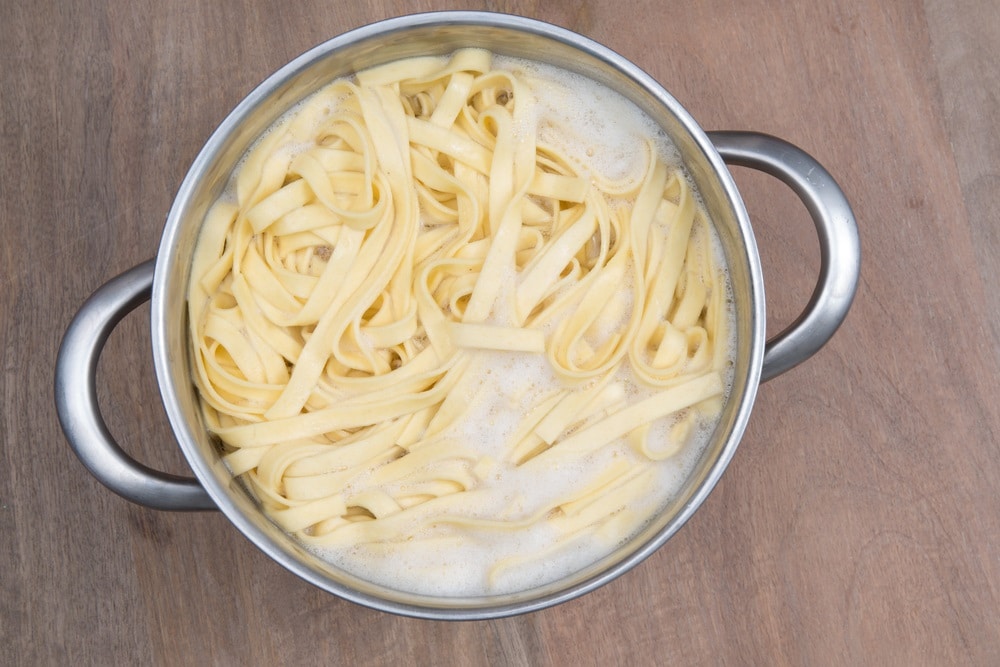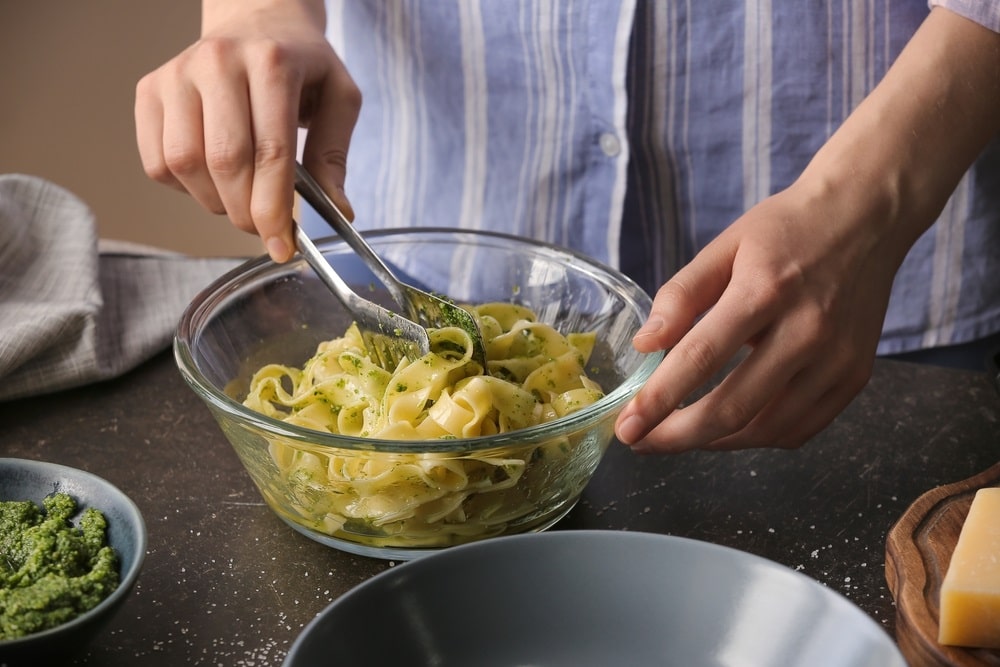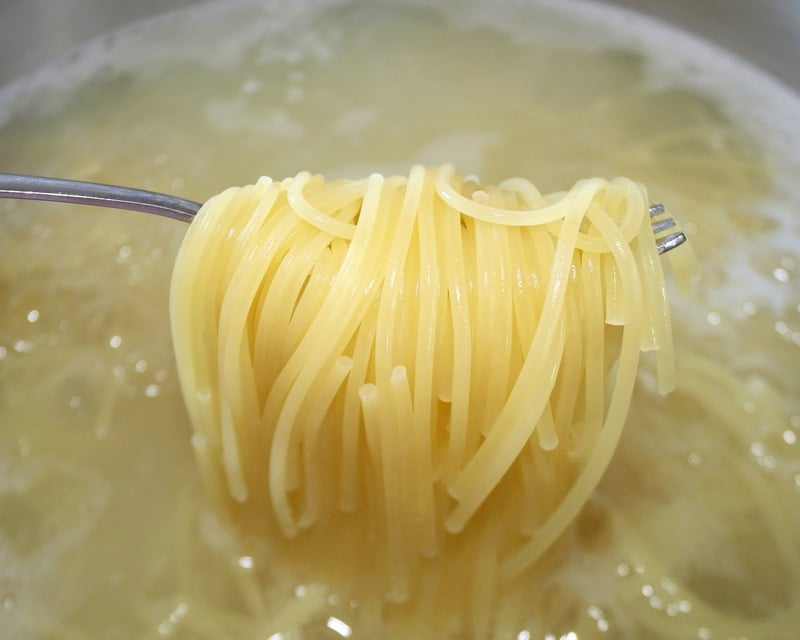
If you are someone who likes quick-fix meals, we are certain that you are a fan of pasta. (Who doesn’t like to just boil some pasta, add a sauce, and have the quickest dinner ever?)
However, boiling pasta perfectly is not as easy as you may think. For this reason, many people wonder, “Can you leave the pasta in water after cooking?” After all, the hot water will keep it warm…
If you have had the same question, we have some answers and tips for you!
Can You Leave Pasta in Water After Cooking?
If you are looking for a quick, short, correct answer, it’s a definite no! Leaving pasta standing around in its cooking water will cause it to go soggy and unappetizing.
Since pasta is boiled in extremely hot water, the hot water will keep cooking the pasta even if you turn the flame off. Pasta cooks by absorbing water and it will continue to do this.
Many people don’t like draining out the water because it helps keep the pasta loose and stops it from sticking together. Plus, it keeps the pasta hot until you are ready to dish up. However, there are other, better solutions for those issues.
Stop Pasta From Clumping Without Leaving It In Its Cooking Water
An easy method is to simply drain out the water using a colander and drizzle a bit of olive oil on top of the pasta. Toss it around with a fork to coat all the strands. Once done, you can even freeze pasta like this in zip-lock bags or other airtight containers.
Then, whenever you want a quick pasta meal, you can take it out of the freezer, toss it into boiling water for two minutes and you are good to go.
Another method to stop pasta from clumping together is to drain the pasta as soon as it’s al dente, reserving a couple of tablespoons of the cooking water. Tip the pasta back into the pot along with the reserved water.
Keep Pasta Warm Without Leaving It In Its Cooking Water
The best scenario here is not to try and keep pasta warm. Instead, have the sauce ready and your guests or family seated at the table. Keep them happy with a glass of wine or cordial and some good music!
Cook the pasta at the last minute just before you are ready to serve the dish. Drain it as soon as it’s done and spoon through the sauce. Serve it immediately.
Why You Should Not Leave Pasta In Water After Cooking
You cannot leave pasta in water after cooking because it leads to overcooking and the pasta won’t retain its shape or al dente texture.
For this reason, drain off the water as soon as it is done and store or add sauce to the pasta immediately. As we’ve shown above, it is best to serve it as soon as it’s done.
As far as reheating the pasta is concerned, you must not use a microwave oven because it makes the pasta rubbery and sticky. Also, you cannot reheat pasta in a conventional oven because the dry heat will dry out the pasta.
An exception to these two rules is if you are reheating a baked pasta dish like lasagne. In this case, the sauce will keep the pasta moist.
In the section below, we share some tips for the perfect pasta so you’ll never leave it sitting in its cooking water again
- Always cook/boil pasta in plenty of salty water. Use a very big pot and a generous spoonful or two of salt.
- Make sure you don’t rinse the pasta before or after it is done cooking.
- As soon as the pasta is cooked to the desired texture, put your strainer into the sink and pour the contents of the pot into it, reserving a little water if you like. Tip the pasta back into the pot and add the reserved cooking water or a glug of olive oil, a pat of butter, or a little sauce. Mix through the rest of the sauce and serve.
- Defrost frozen pasta by tipping it into a pot of rapidly boiling salted water. Bring back to a boil and then drain immediately.
To Conclude
Never let pasta sit in water after it’s done cooking if you don’t want a bland flavor and soggy texture. Instead, to keep the pasta moist yet firm and the strands separate, just add a little olive oil or cooking water.

